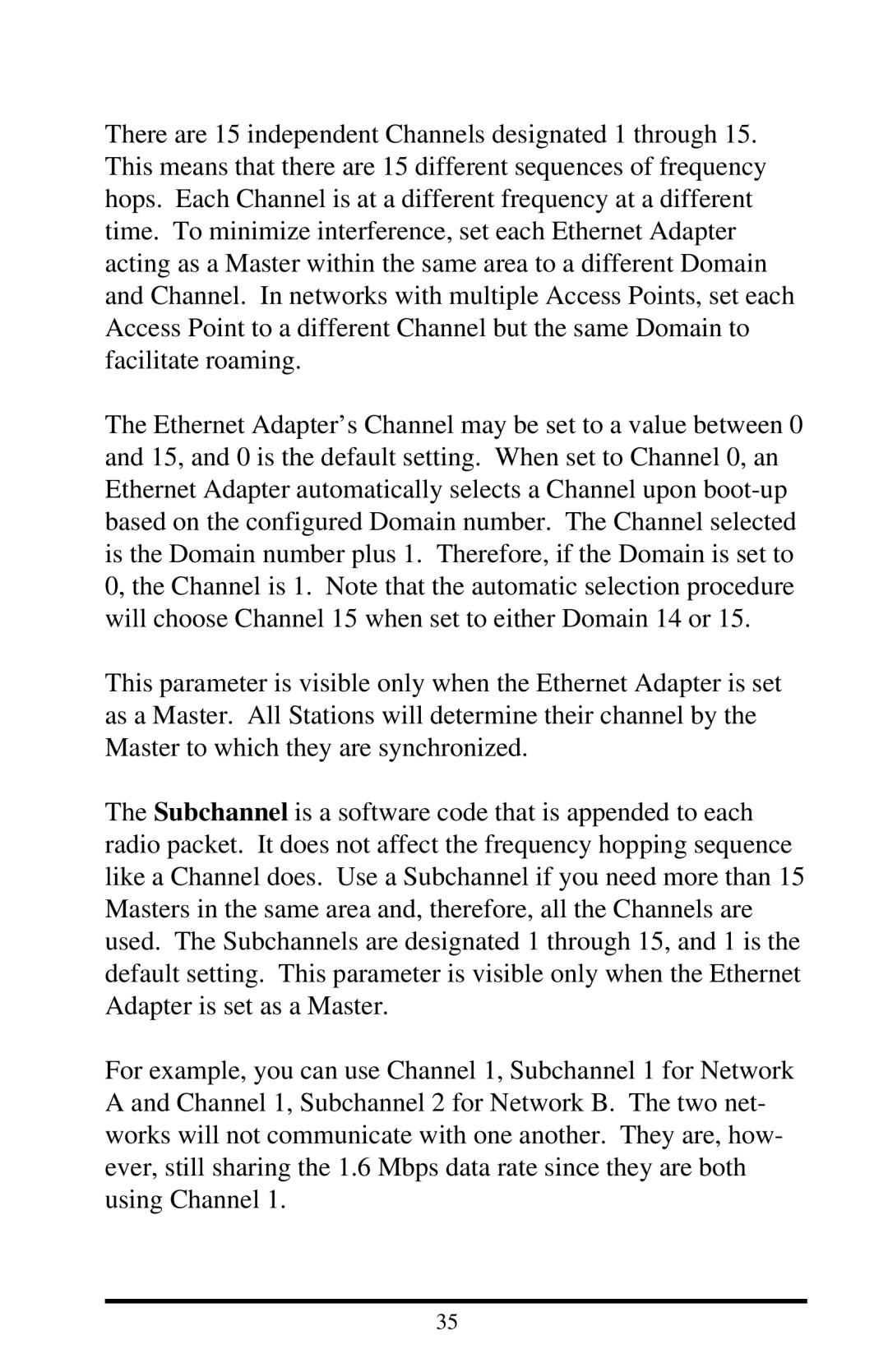There are 15 independent Channels designated 1 through 15. This means that there are 15 different sequences of frequency hops. Each Channel is at a different frequency at a different time. To minimize interference, set each Ethernet Adapter acting as a Master within the same area to a different Domain and Channel. In networks with multiple Access Points, set each Access Point to a different Channel but the same Domain to facilitate roaming.
The Ethernet Adapter’s Channel may be set to a value between 0 and 15, and 0 is the default setting. When set to Channel 0, an Ethernet Adapter automatically selects a Channel upon
This parameter is visible only when the Ethernet Adapter is set as a Master. All Stations will determine their channel by the Master to which they are synchronized.
The Subchannel is a software code that is appended to each radio packet. It does not affect the frequency hopping sequence like a Channel does. Use a Subchannel if you need more than 15 Masters in the same area and, therefore, all the Channels are used. The Subchannels are designated 1 through 15, and 1 is the default setting. This parameter is visible only when the Ethernet Adapter is set as a Master.
For example, you can use Channel 1, Subchannel 1 for Network A and Channel 1, Subchannel 2 for Network B. The two net- works will not communicate with one another. They are, how- ever, still sharing the 1.6 Mbps data rate since they are both using Channel 1.
35
